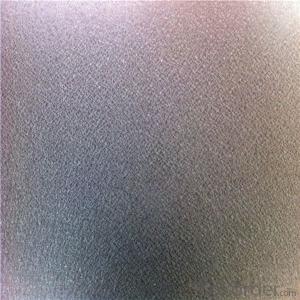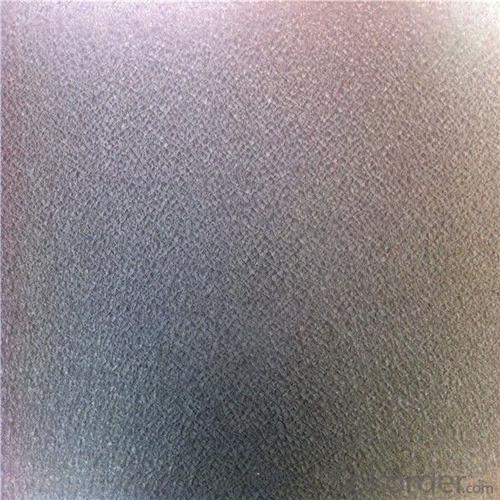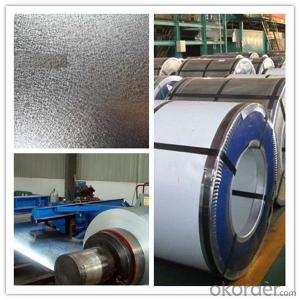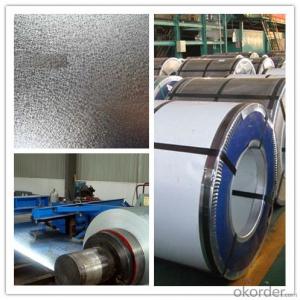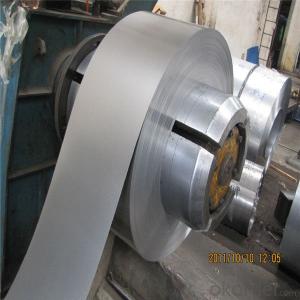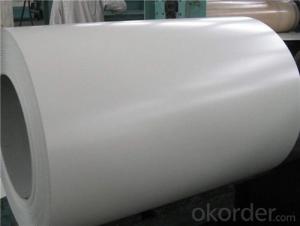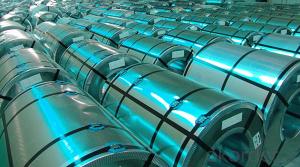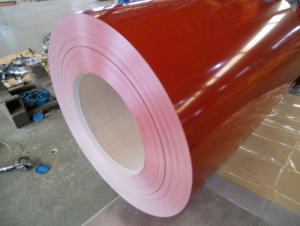Coated aluzinc steel coil For Metal Roofing
- Loading Port:
- China main port
- Payment Terms:
- TT OR LC
- Min Order Qty:
- 25 m.t.
- Supply Capability:
- 17654 m.t./month
OKorder Service Pledge
OKorder Financial Service
You Might Also Like
Specification
Hot –dip aluzinc steel sheet/coil is substrated on cold rolled steel (CRC) in various strength and specification. Coating
composition is 55% aluminum in weight ratio, 43.4% zinc, and 1.5% silicon, with excellent corrosion and heat resistance
performance.
Galvalume steel sheet combines the excellent barrier corrosion protection of aluminum with the galvanic
protection of zinc. The result is a coating that lasts a long time, a coating that provides cut-edge protection
along sheared edges, and therefore, a coating that offers excellent protection to steel sheet. Although there
are a few exceptions, for most applications in most types of environment, Galvalume steel sheet is the preferred
product when long-term resistance to atmospheric corrosion is desired.
Standard and Grade :
Hot-dip Aluzinc steel coils | ||||
ASTM A792M-06a | EN10327-2004 | JIS G 3321:2010 | AS- 1397-2001 | |
Commercial quality | CS | DX51D+AZ | SGLCC | G1+AZ |
Structure steel | SS GRADE 230 | S220GD+AZ | SGLC400 | G250+AZ |
SS GRADE 255 | S250GD+AZ | SGLC440 | G300+AZ | |
SS GRADE 275 | S280GD+AZ | SGLC490 | G450+AZ | |
SS GRADE 340 | S320GD+AZ | SGLC570 | G450+AZ | |
SS GRADE 550 | S350GD+AZ | G500+AZ | ||
S550GD+AZ | G550+AZ | |||
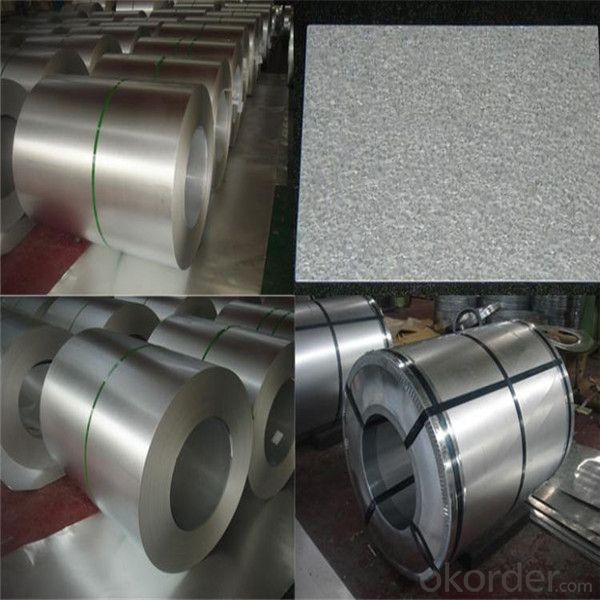
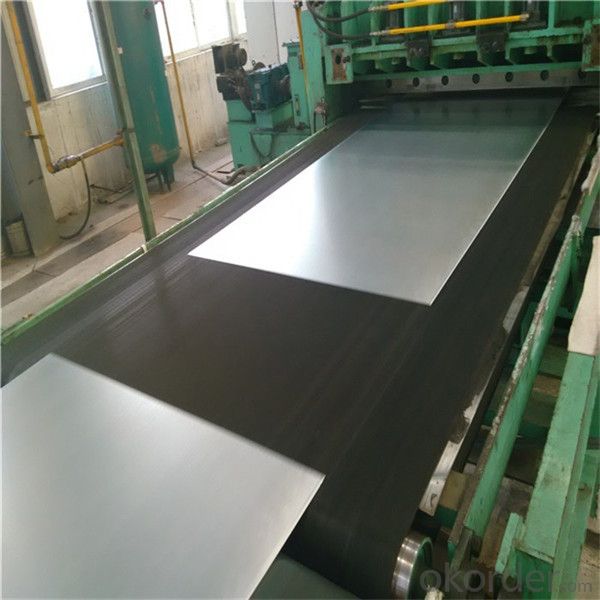
Application :
Production of cold formed corrugated sheet and profiles for roofing, cladding, decking, tiles, sandwich
walls, rainwater protective systems, air conditioning duct as well as electrical appliances and engineering.
Packaging & Shipping
Packaging Detail | The packing of coil consists of anti-damp paper ,PVC film ,hardboard paper , steel box , strapped with steel strips, fitted with locks and edge protectors and guarantees the optimal condition of the delivered goods. Each coil can be additionally fitted with wooden/steel skids(eye of the side) or wooden pallets(eye of the sky) |
Delivery Time | within 30 days of receipt of LC original or prepayment |
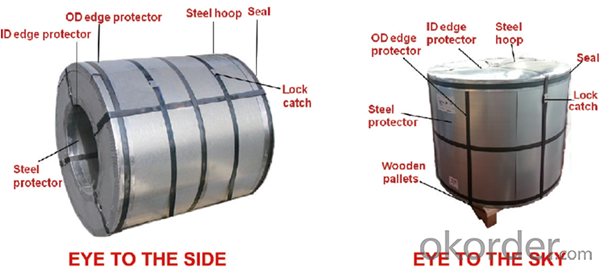
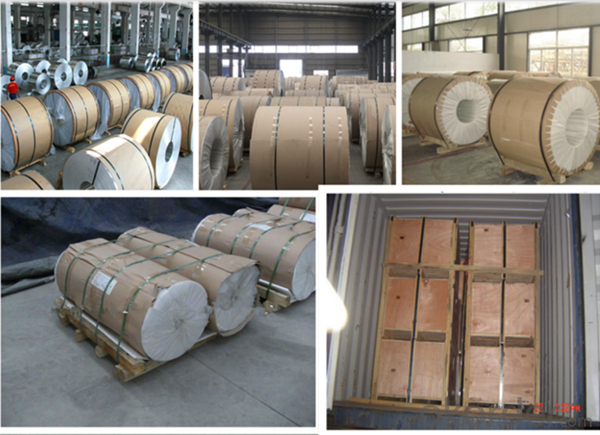
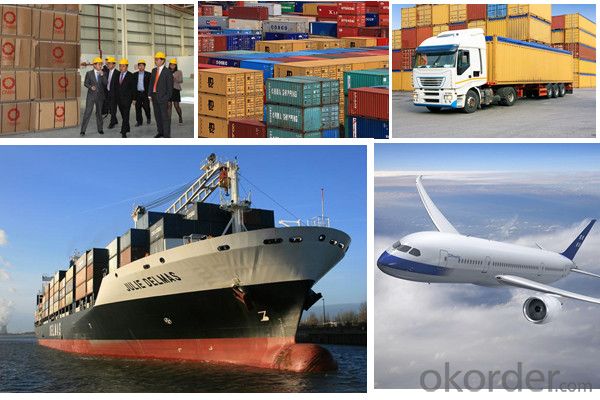
Our Services
MOQ | FCL, 25 metric tons per 20GP, can be assorted with different sizes. |
LCL for trial order is acceptable. | |
Price Term | EX-WORK, FOB China Port, CNF, CIF |
Payment | T/T, 30% advanced payment before production and balance before shipment; OR Irrevocable L/C at sight. |
Delivery Time | within 30 days of receipt of LC original or prepayment |
Our Advantage
* Professional Personnel of Steel Trading
* Strong Steel Industry Background
* Conveniently Geographic Location
FAQ
Q: How do you guarantee the quality of your product?
A: Every process will be checked by responsible QC which insures every product's quality.
Q: How much is your delivery time?
A: Normally within 30 days of receipt of LC original or prepayment, but mostly according to the
specific requirements or the quantity
Q: I need sample, could you support?
A: We can supply you with the sample for free, but the delivery charges will be covered by our customers.
For avoiding the misunderstanding, it is appreciated if you can provide the International Express Account for
Freight Collect. Also you can have a visit to us, welcome to CNBM!
- Q: What are the common methods of cutting-to-length steel coils?
- The common methods of cutting-to-length steel coils include shearing, slitting, and sawing.
- Q: I felt that my nylon strings don't sound as good as steel ones. Is it okay that I replace them with steel ones, even if my guitar is classical? Thanks.
- I advise you not to as it will damage your guitar :) they do sound way better but that's what an acoustics for
- Q: How do steel coils compare to other types of metal coils?
- Steel coils are generally considered superior to other types of metal coils due to their exceptional strength, durability, and versatility. Steel coils have excellent resistance to corrosion, heat, and impact, making them suitable for various applications ranging from construction and automotive industries to manufacturing and packaging sectors. Additionally, steel coils exhibit excellent formability and can be easily shaped and molded into different shapes and sizes, offering greater flexibility and customization options.
- Q: Why is steel used for building purpose and not any other metal?
- Steel is used over most other metals due to its desireable properties for buildings. To name a few: strength, hardness, ductility, conductivity, flexability, weight, ability to shape/mold, non-combustability, weather resistance and cost Many other metals have the same properties, only on different scales. For instance, copper may be an excellent conductor, howwever it's expensive and not very weather resistant. Aluminum may be flexible, moldable, but not very strong. The list goes on and on..
- Q: What are the properties of high-strength steel coils?
- High-strength steel coils possess several key properties that make them desirable in various applications. These include exceptional tensile strength, excellent formability, and increased resistance to wear, corrosion, and impact. Moreover, high-strength steel coils typically exhibit higher yield and ultimate strength than regular steel coils, making them suitable for demanding structural and manufacturing purposes.
- Q: What are the different thickness tolerances for steel coils?
- The different thickness tolerances for steel coils can vary depending on the specific grade and type of steel being used, as well as the industry standards and customer requirements. However, common thickness tolerances for steel coils typically range from +/- 0.005 inches to +/- 0.020 inches, with tighter tolerances available for certain applications.
- Q: How do steel coils perform in high-pressure applications?
- Due to their robust and durable nature, steel coils are highly effective in high-pressure scenarios. The exceptional tensile strength of steel enables it to endure immense pressure without any distortion or breakdown. Moreover, steel coils are specifically engineered to retain their shape and structural integrity even under the most extreme pressure, making them ideal for deployment in a wide range of high-pressure applications such as hydraulic systems, pressure vessels, and industrial machinery. Furthermore, the exceptional resistance of steel coils to corrosion and high temperatures further augments their performance in high-pressure environments. These qualities, coupled with their reliability and capacity to withstand high pressure, render steel coils the preferred choice for industries seeking resilient and efficient equipment.
- Q: How are steel coils tested for compliance with industry standards?
- Steel coils are tested for compliance with industry standards through a series of rigorous quality control measures. These tests are conducted to ensure that the coils meet the necessary specifications and are suitable for use in various applications. One of the primary tests performed on steel coils is the dimensional inspection. This involves measuring the thickness, width, and length of the coils to ensure they meet the specified tolerances. Any deviations from the required dimensions can indicate a manufacturing defect or potential issues during fabrication. Another critical test is the visual inspection, where trained inspectors carefully examine the coils for any surface defects such as scratches, dents, or cracks. These defects can affect the performance and durability of the steel coils, making it essential to identify and rectify them before they are supplied to customers. Furthermore, mechanical properties testing is conducted to assess the strength, elasticity, and toughness of the steel coils. This includes tests like tensile strength, yield strength, and elongation measurements. These tests help determine the suitability of the coils for specific applications and ensure they meet the required performance standards. Additionally, chemical composition analysis is performed to verify the elemental composition of the steel coils. This analysis is crucial as it ensures that the steel meets the required chemical requirements, including the presence of specific alloying elements. Deviations in composition can impact the overall quality and performance of the coils. Corrosion resistance testing is also important, especially for coils used in environments with high humidity or exposure to corrosive substances. Coils are subjected to salt spray or humidity chambers to simulate real-world conditions and evaluate their resistance to corrosion. Lastly, various non-destructive testing techniques, such as ultrasonic testing and magnetic particle inspection, are used to detect internal defects or discontinuities in the steel coils. These tests help identify any hidden flaws that may compromise the structural integrity of the coils. Overall, steel coils undergo a comprehensive range of tests to ensure compliance with industry standards. By conducting these tests, manufacturers can guarantee that the coils meet the required specifications, providing customers with high-quality products that meet their specific needs.
- Q: I am refinishing a table and on my can of polyurethane, it indicates not to sand with steel wool prior to application. Why is that?
- Steel wool will leave invisible pieces of metal embedded in the finish, no matter how much you try to wipe it off. When you cover it with the polyurethane, it is trapped and turns dark over time, ruining the look of the table. Yeh, so follow the directions exactly for the best finish. Good luck!! : /
- Q: i bought an airsoft gun and it said steel recievers on it im not sure what that is
- It means the receivers are steel, what did you think it meant? I would call steel a bad thing in airsoft, because it's unnecessary and heavy. You'd honestly be better off getting a gun with plastic receivers and buying an aftermarket kit. My GP receivers are very strong, and incredibly light.
Send your message to us
Coated aluzinc steel coil For Metal Roofing
- Loading Port:
- China main port
- Payment Terms:
- TT OR LC
- Min Order Qty:
- 25 m.t.
- Supply Capability:
- 17654 m.t./month
OKorder Service Pledge
OKorder Financial Service
Similar products
Hot products
Hot Searches
Related keywords
